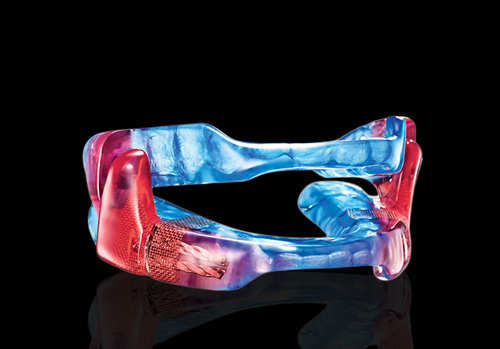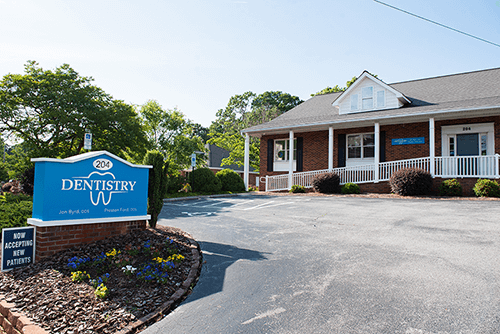Sleep Apnea
Sleep apnea is a serious sleep disorder characterized by repeated interruptions in breathing during sleep. These interruptions, known as apneas, can last from a few seconds to minutes and may occur multiple times throughout the night.
Sleep Apnea Dentist in High Point, NC
Sleep apnea is a common yet serious sleep disorder characterized by repeated interruptions in breathing during sleep. These interruptions can last from a few seconds to minutes and can occur multiple times throughout the night, leading to poor sleep quality and various health issues.
Common Symptoms of Sleep Apnea
- Loud Snoring: One of the most common signs of sleep apnea is loud, persistent snoring.
- Daytime Fatigue: Despite a full night’s sleep, sleep apnea patients often experience excessive daytime sleepiness.
- Gasping for Air: Waking up abruptly with shortness of breath or gasping for air.
- Morning Headaches: Frequent headaches in the morning are a common symptom.
- Difficulty Concentrating: Trouble focusing and memory problems.
Patients from across the Triad, including Greensboro and Winston-Salem, trust High Point Dental Partners to help them find effective solutions for managing sleep apnea, and improve sleep quality. Our comprehensive evaluation process encompasses reviewing your medical history to discuss any symptoms you might be experiencing, recommending a sleep study for diagnosing the severity of your sleep apnea, and conducting a thorough oral examination to identify any contributing oral health issues.
Based on the evaluation, we will create a customized treatment plan that may include:
- Oral Appliance Therapy: We offer custom-fitted oral appliances designed to keep your airway open during sleep. These appliances are comfortable, easy to use, and effective for mild to moderate sleep apnea.
- Lifestyle Modifications: We provide guidance on lifestyle changes, such as weight management, smoking cessation, and positional therapy, to help reduce sleep apnea symptoms.
- Collaboration with Specialists: If necessary, we will work with sleep specialists to ensure you receive comprehensive care and treatment.

-
What is sleep apnea?
Sleep apnea is a sleep disorder where breathing repeatedly starts and stops, leading to lower-quality sleep and affecting the body’s oxygen supply. There are three main types:
- Obstructive sleep apnea
- Central sleep apnea
- Complex sleep apnea syndrome
It is often associated with loud snoring but can be caused by various factors such as being overweight, excessive alcohol consumption, or genetics. According to the Sleep Foundation, it is one of the most common sleep disorders in the United States, affecting both children and adults of both sexes, more commonly in men.
-
How is sleep apnea diagnosed?
Sleep apnea is typically diagnosed using a polysomnogram, also known as a sleep study. This can be done at home or at a sleep center. The test records activities that occur while you sleep, including brain activity, breathing, and oxygen levels. It also measures how long you spend in each sleep stage, how frequently you wake up, if you stop breathing, if you snore, and your body position.
After the sleep study, a specialist goes over the data from your test. They analyze your brain activity and body system functioning to diagnose if a sleep disorder is present and recommend treatment.
If recommended, a dentist trained in sleep medicine works with the specialist to treat obstructive sleep apnea with oral appliance therapy. Our office can provide you with a sleep apnea oral appliance. Just contact us for a consultation.
-
What are common sleep apnea symptoms?
The most common symptoms of sleep apnea are listed below. Just because you have one, or a few of these, doesn’t mean you have sleep apnea. Check with your doctor to be certain.
- Very loud snoring
- Sleepiness and loss of energy when awake
- Painful headaches
- Restless sleep
- Insomnia and recurrent awakenings
- Waking up with a dry or sore throat
- Waking up in the night with gasping or choking sensations
- Sudden mood changes
- Poor concentration
- Going to the bathroom frequently at night
-
How is sleep apnea treated?
Treatment for snoring and obstructive sleep apnea may include surgery, CPAP or BiPAP machines, or oral appliance therapy. Oral appliances are the least invasive option and are often a good choice for treating mild to moderate OSA. A carefully calibrated appliance can comfortably hold the jaw in a precise position throughout the night, allowing for critical oxygen flow.
All treatment recommendations should be made in consultation with your sleep physician. Once a treatment plan that you can consistently follow is chosen, we may be able to provide crucial support for your efforts. If appliance therapy is selected, it’s essential that the right method and positioning are used to precisely maintain your airway.
Questions About Sleep Apnea?
If you have any questions about sleep apnea treatment options available or a consultation—contact us today.

